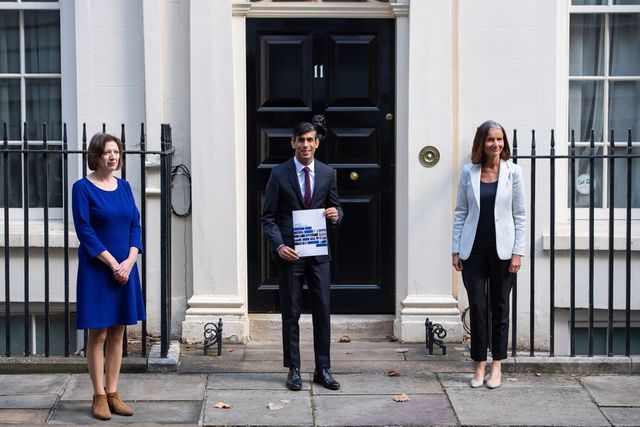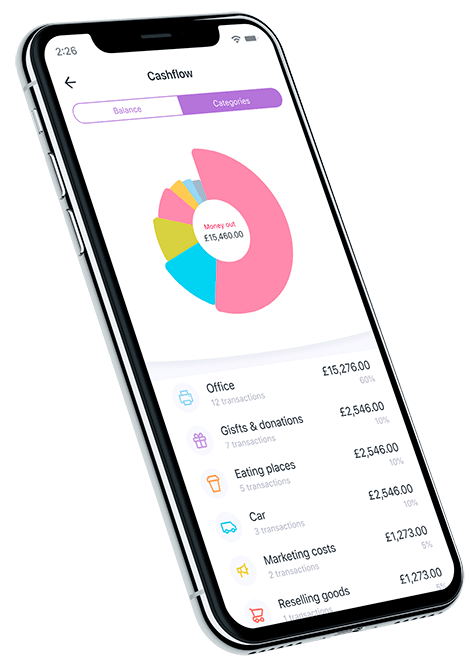COVID-19: Summing Up the Winter Economy Plan

As regional lockdowns roll across the UK, we catch up with the latest support made available for small business.
It's not surprising that the idea of a second lockdown is unthinkable for many businesses. In July we surveyed owners across the UK, revealing that 47% were more concerned about a repeat lockdown than anything else, dwarfing worries about cash flow and debt.
Over the past few weeks, the Prime Minister has addressed the nation as cases of COVID-19 rise across the four nations. While the message remains clear, that any steps taken now are intended to prevent a second lockdown, the continued spread of the virus and local restrictions is terrible news for business.
Continuing effects
In late September, a significant change saw people advised to work from home where possible, emptying offices that had been slowly filling up. The sport and events sectors, which had been gearing up for, if not a return to normal, then establishing a new normal from the beginning of October, were stopped in their tracks. While events are returning in socially conscious ways in parts of Europe, all plans to expand these critical industries in the UK are on a knife-edge. Curfews have reeled in the hospitality market, barely a month after the Chancellor's Eat Out to Help Out scheme encouraged the public back to the high street.
Considerable pressure has fallen on the Government to provide support that diffuses curfews and restrictions. But what is the latest impact on the self-employed and owners of small businesses?
The Winter Economy Plan
Was the Spring Budget only seven months ago? Unlike that announcement, which was adapted to respond to the fast-developing effect of coronavirus in March, Chancellor Rishi Sunak dispensed with the usual Autumn Budget, instead favouring a raft of immediate support measures.
Announced by the Chancellor:
- The furlough scheme to be replaced by the Job Support Scheme where the Government will subsidise up to two-thirds of wages
- An extension to the 5% VAT cut to boost spending
- Extra time for to pay business Bounce Back Loans (from six years to ten)
- An extension for self-employment grants and more time to pay tax bills
- Deferred or split VAT bills
- Coronavirus loans for businesses extended until the end of 2020
What does the SEISS extension mean for your small business?
The self-employment income support scheme (SEISS) has previously provided grants to support affected self-employed workers for periods of three months.
The first round of applications closed on 13th July 2020. The second round opened on 17th August and you still have until 19th October to apply. This grant is worth 70% of average monthly trading profits, capped at £6,570 in total.
This scheme has now been extended. A new grant will span November to January 2021, covering 20% of a business' average monthly profits, capped at £1,875.
There will be a further grant made available to cover February 2021 to the end of April. The level of support will be confirmed before the launch.
Who's eligible?
Chancellor Rishi Sunak made it clear that the revised support measures are there for "firms that need it most". To apply, you must declare that they are currently trading despite being impacted by coronavirus during the qualifying period (on or after 14th July 2020) and meet the previous eligibility for SEISS, whether you have claimed it or not. Remember, if you've claimed earlier grants, you can apply again.
You must have filed a tax return for 2018/19 - the grants are calculated based on an average of your profits over three tax years, if available.
As with previous grants, half of your total income must come from self-employment with a trading profit not exceeding £50,000.
But, if you're a LTD company director, you cannot apply for this scheme. If that's you, check the Additional Support below.
What should you do next, and how do you claim?
If you're a self-employed worker that's previously missed out on grant applications (a potential £14,0707) you should check your eligibility before the next round closes on 19th October.
It's well worth checking current eligibility. A rule change in August removed exclusions for workers who are claiming maternity allowance or caring for a new child.
to check criteria and apply, head to Gov.uk.
Additional support
Additional measures that could help your business through this challenging time include:
Income-tax deferrals: You can now defer self-assessment tax payments originally due in July to the end of January 2021, so make sure you check your dates.
Rent support: Any businesses struggling with rent is protected from eviction until the end of 2020.
Coronavirus business interruption loan scheme: The length of loans and overdrafts made available to SMEs has now been extended from six to ten years. Capped at £5 million, the Government guarantees up to 80% of these.
VAT payments: VAT payments can be deferred for three months.
Tax payments: SMEs struggling to meet their tax bills can ask HMRC for a "time to pay" arrangement that could suspend debt collection.
Business rates holiday: Many businesses are eligible for a 12-month business rates holiday.
Double-check the support you're eligible for with the Government's support finder.

Download now!
And you can open a business account with all the support you need in minutes.



